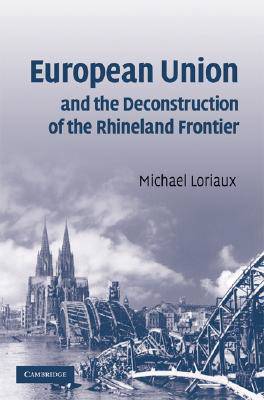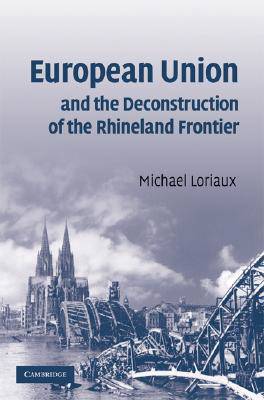
- Afhalen na 1 uur in een winkel met voorraad
- Gratis thuislevering in België vanaf € 30
- Ruim aanbod met 7 miljoen producten
- Afhalen na 1 uur in een winkel met voorraad
- Gratis thuislevering in België vanaf € 30
- Ruim aanbod met 7 miljoen producten
Zoeken
€ 114,95
+ 229 punten
Uitvoering
Omschrijving
The Rhineland region includes the core regional economy of western Europe, encompassing Belgium, Luxemburg and parts of the Netherlands, France, Switzerland and Germany. Throughout history there have been tensions between this region's roles as a frontier and as western Europe's economic core. Michael Loriaux argues that the European Union arose from efforts to deconstruct this frontier. He traces Rhineland geopolitics back to its first emergence, restoring frontier deconstruction to the forefront of discussion about the EU. He recounts how place names were manipulated to legitimate political power and shows how this manipulation generated the geopolitics that the EU now tries to undo. Loriaux also argues that the importance of this issue has significantly affected the nature of the EU's development and helps condition a festering legitimation crisis.
Specificaties
Betrokkenen
- Auteur(s):
- Uitgeverij:
Inhoud
- Aantal bladzijden:
- 350
- Taal:
- Engels
Eigenschappen
- Productcode (EAN):
- 9780521880848
- Verschijningsdatum:
- 13/10/2008
- Uitvoering:
- Hardcover
- Formaat:
- Genaaid
- Afmetingen:
- 155 mm x 231 mm
- Gewicht:
- 657 g

Alleen bij Standaard Boekhandel
+ 229 punten op je klantenkaart van Standaard Boekhandel
Beoordelingen
We publiceren alleen reviews die voldoen aan de voorwaarden voor reviews. Bekijk onze voorwaarden voor reviews.











